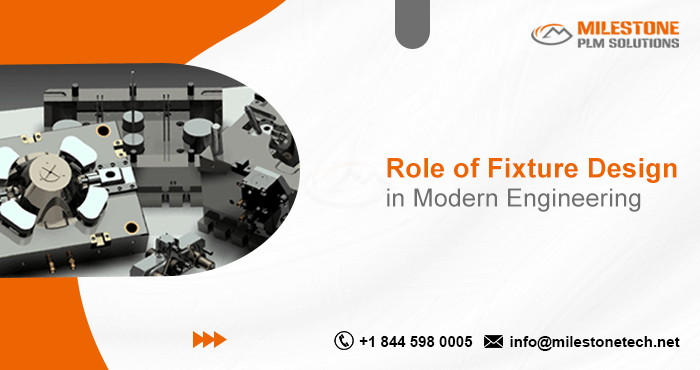Role of Fixture Design in Modern Engineering

Fixture design, often overlooked in the grand scheme of product development, is a critical component of modern engineering. It is the unsung hero that ensures precision, efficiency, and quality in manufacturing processes. This article delves into the significance of fixture design, exploring its impact on various industries and the technological advancements transforming this field.
Understanding Fixture Design
A fixture is a specialized tool or device used to hold and position a workpiece during manufacturing operations. It ensures accuracy, repeatability, and safety by providing a stable platform for machining, assembly, or inspection. Effective fixture design is a blend of art and science, requiring a deep understanding of materials, manufacturing processes, and engineering principles.
The Importance of Fixture Design
- Precision and Accuracy: Fixtures play a pivotal role in achieving dimensional accuracy and tolerances. By securely holding the workpiece, they prevent distortion and deviations, resulting in products that meet stringent quality standards.
- Efficiency and Productivity: Well-designed fixtures streamline production processes by reducing setup times, increasing cycle times, and minimizing errors. They enable automation and facilitate the use of advanced manufacturing technologies.
- Safety: Fixtures enhance workplace safety by preventing accidents caused by manual handling of workpieces. They provide a secure and ergonomic environment for operators.
- Cost Reduction: By improving efficiency and reducing scrap rates, fixture design contributes to overall cost savings. Optimized fixtures can also minimize material wastage and energy consumption.
Fixture Design in Modern Industries
Fixture design has a profound impact on various industries:
- Automotive: The automotive industry relies heavily on fixtures for assembling complex components like engine blocks, chassis, and body panels. Precise fixture design is essential to ensure vehicle performance, safety, and durability.
- Aerospace: The aerospace industry demands the highest levels of precision and reliability. Fixtures are critical for manufacturing aircraft components, ensuring they meet stringent quality and safety standards.
- Electronics: In the electronics industry, fixtures are used for assembling printed circuit boards (PCBs) and other delicate components. They must be designed to prevent damage and ensure electrical connectivity.
- Medical Devices: The medical device industry requires impeccable precision and sterility. Fixtures are used to manufacture implants, surgical instruments, and other medical components, adhering to strict regulatory requirements.
Advancements in Fixture Design
The field of fixture design is constantly evolving with technological advancements:
- Computer-Aided Design (CAD): CAD software enables engineers to create detailed and accurate fixture designs, improving efficiency and reducing errors.
- Finite Element Analysis (FEA): FEA helps optimize fixture designs by predicting stress and deformation under various loading conditions.
- Rapid Prototyping: Rapid prototyping technologies allow for quick fabrication of fixture prototypes, accelerating the design and testing process.
- Modular Fixture Systems: These systems offer flexibility and adaptability, allowing for easy customization and reconfiguration.
Future Trends in Fixture Design
- Digital Twins: Creating virtual representations of fixtures will enable engineers to simulate and optimize designs before physical production.
- Additive Manufacturing: 3D printing will revolutionize fixture design by enabling the creation of complex and customized fixtures.
- Smart Fixtures: Incorporating sensors and data analytics into fixtures will provide real-time feedback and enable predictive maintenance.
Conclusion
In conclusion, fixture design is a cornerstone of modern engineering. By ensuring precision, efficiency, and safety, it plays a vital role in driving productivity and quality across various industries. As technology continues to advance, fixture design will evolve to meet the increasing demands of complex and high-performance products.
Follow Milestone PLM Solutions for Mechanical Industry Updates, CAD Tips and Global Mechanical News.
Milestone PLM Solutions with its exclusive delivery center in India is a global CAD, CAM & FEA services outsourcing partner serving the needs of the Mechanical, Millwork and Automotive industry since 2004. MILESTONE focuses on the unique needs of clients and believes in tackling real-life problems with efficiency, smooth and ease.
The MILESTONE team can assist you with Product Design, 3d Modeling, Drafting & detailing, Reverse Engineering, FEA Analysis and more. We support multiple software including AutoCAD, SolidWorks, Catia, NX, Inventor, Solidedge & Ansys etc. Our approach is to provide a dedicated team for each customer over ongoing project and deliver the quality output consistently.
With our state of art technology and large talent pool of Engineers, we are developing best in class solutions for our customers across the globe. We align with your culture and values to form unbreakable partnerships and are primed for success with over 100 employees and 150 customers in the US, Europe, India, and Asia.
You can email us at info@milestonetech.net and can log in to our website www. milestonetech.net to know more about our services and our work portfolio or contact us on +1-844-598-0005
